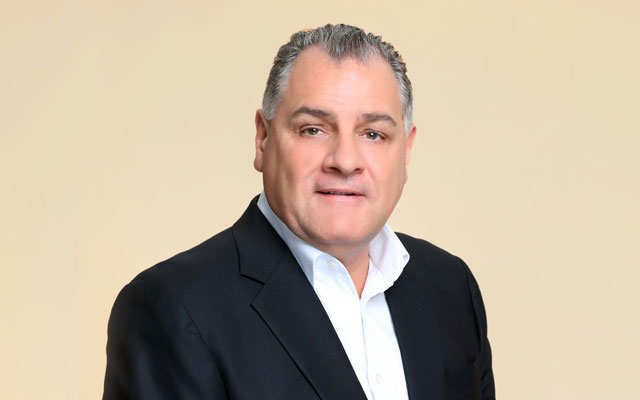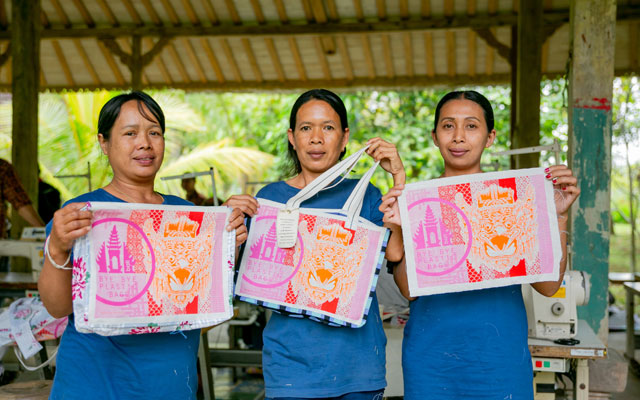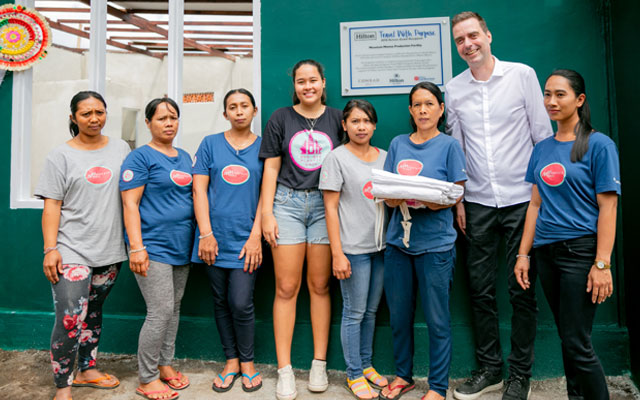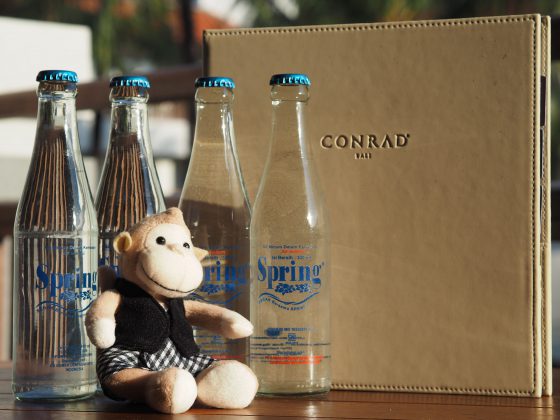In an age of increased awareness, travellers across the globe understand the need to be more eco-friendly and sustainable. But for a large hotel chain, introducing a change isn't simple, as there are many factors to consider. Paul Hutton, vice president, operations, Hilton in South-east Asia, reveals how he is working towards shaping a more environmentally-friendly future for the industry
Tell us more about Hilton’s move towards sustainability.
As a global hospitality company of our scale and heritage, we recognise that we have the ability and more importantly, the responsibility, to do our part for the communities and markets we operate in.
Couple that with the increasing impact of climate change and knowledge that South-east Asia as a region is a major contributor to plastic pollution, we are well aware of the urgency of the action we need to take.
This is why two years ago Hilton launched a set of broad, but deeply meaningful goals, as part of what we call “Travel with Purpose” – our corporate responsibility strategy – to further the United Nation’s 2030 Sustainable Development Agenda. Our goals were clear and simple: to reduce our environmental footprint by half, and double our investment in social impact, by 2030. With this commitment, Hilton became the first major hotel company to institute science-based targets to reduce carbon emissions and send zero soap to landfill.
In South-east Asia alone, we have 43 hotels with around 13,000 rooms operating across nine markets, and a robust pipeline of 54 hotels set to open in the next five years. We know that whenever we launch a hotel or resort, whether it is in an established or emerging destination, we will be there for the long-run.
Since we pledged our commitment back in 2018, we have been consistently working towards furthering the sustainability agenda through concerted efforts in plastic reduction, soap recycling, food waste management and other areas, to ensure that we are making a positive impact on the environment we are in.
How does the hotel’s planning team work with corporate planners to ensure green meetings? Are people usually receptive or do they need to be persuaded?
Hilton’s Meet with Purpose is a programme we developed to make it easy for meeting professionals to achieve business and sustainability goals in meetings. Anchored by three core values – Mindful Meeting, Mindful Eating and Mindful Being – Meet with Purpose offers corporate planners a wide range of menus and activities that are simple to implement, yet have the potential to make a big impact on the attendees and the world around us.
Reception to our Meet with Purpose programme has been positive so far. I think a large part of this is due to the fact that people are becoming more aware of the importance and urgency of environmental conservation.
Consumers are also becoming increasingly driven by a sense of purpose and it is affecting how they engage with brands. According to a global survey by Accenture Strategy, 62 per cent of consumers reportedly want companies to take a stand on the social, cultural, environmental and political issues they care about the most, and 47 per cent will stop doing business with a company in response to a moment of brand disappointment.
Could you share a few tangible examples of successful sustainability work in and around your hotels?
We use eco-friendly alternatives instead of plastic straws across all of our Singapore hotels. Pay a visit to Conrad Centennial Singapore and you’ll be given a rice straw to use instead – they are of high quality and are environmentally safe as well, as they decompose completely in 90 days.
At Waldorf Astoria Maldives Ithaafushi, we have replaced traditional plastic key cards with wooden alternatives, as they are more durable, biodegradable, and can incorporate the features of a regular plastic key card.
In August 2019, we partnered local company, Spring Water, to completely replace plastic-bottled water from all our guestrooms across Bali, Indonesia, with glass-bottled water. This move has allowed our three hotels in Bali to save 40 per cent of costs, and reduce up to 500,000 plastic bottles annually.
We have also come a long way with our bathroom amenities. For instance, in Conrad Centennial Singapore, the packaging for items such as cotton wool and cotton earbuds, are now made of corn starch, which is biodegradable. Bamboo toilet rolls and napkins are also used as a more environmentally friendly solution. This is because bamboo is fast-growing and takes only two years to mature, as compared to five years for regular trees.
Incorporating green practices is a gradual process that requires a significant amount of time and effort: conducting research, understanding what does or does not work, ensuring that the dollars and cents make sense for the business, and of course, making sure that our service standards are not compromised and that our people are behind every change.
Can single-use plastic be completely removed from hotels?
I hear you: single-use plastic is a major contributor to the waste issue the world faces today. According to data from non-profit research organization Our World in Data, the Asia-Pacific region accounts for 60 per cent of improperly disposed of plastic waste, or mismanaged waste, so removing it entirely can appear daunting.
What I personally find incredibly encouraging is seeing major corporations and businesses joining the drive towards stronger environmental protections, and taking concrete steps to lessen their reliance on single-use plastics. As we continue to find new and innovative ways to reduce our environmental footprint, it’s only a matter of time before we are able to make a collective and long-lasting impact on environmental sustainability.
No initiative is too small. As long as we continue to think the right way and take steps to reduce waste in any form across our business, we’re moving in the right direction.
What does sustainability mean to you, as an individual, in your position?
As the son of an ambassador, I spent much of my early years travelling with my family. In fact, it was being so immersed in the world of travel from such a young age that sparked my passion for the industry, and has kept me in it for the 35 years.
Being a part of the hospitality business all these years, I have been privy to the processes of hotel operations and management, and the amount of waste that is generated through a hotel at any given time.
With the issue of climate change becoming increasingly prevalent, it is absolutely critical that global hospitality companies such as Hilton, which has the ability and responsibility to effect change in this area, does so.
Outside of leading the South-east Asia operations for Hilton, I also spearhead our plastics working group in Asia-Pacific to reduce our reliance on single-use plastics across our hotels in the region. The results have been incredibly encouraging, and it motivates me every day to continue pushing the sustainability agenda across South-east Asia.
How do you encourage the same passion in your team?
As a business of people serving people, one of our main priorities is focused on ensuring that the 12,000 team members who work across our hotels in my region, South-east Asia, are aligned with our stance on environmental sustainability.
My team knows clearly that this is a business critical topic for all of us, and they also know I am personally a big advocate as well.
What has helped facilitate this alignment across the team was having a clear mandate from the leadership team on what we wanted to achieve. It was also important that we put in place tangible targets and measurement indices so everyone could play their part in helping us, as a company, reach our goals.
It is important that everyone knows these actions are not just nice-to-haves, but are as important as other business metrics.
How can the hospitality industry as a whole, be more sustainable?
I think it starts with the mindset. Hilton celebrated 100 years of innovation last year and for us, embracing a spirit of innovation and continuing to push the boundaries on what hotels can do has taken us a long way.
I hope hotels can continue to focus on creative ways to find alternatives to single-use plastics, among others. Environmental sustainability is such a complex and multi-layered issue that needs to be addressed from various angles. There is no one solution that can help eliminate waste altogether, but a collective effort on tackling each and every issue that comes with reducing waste would definitely help in achieving our end goal.
I do think that if we can all learn and adopt best practices from each other, it would be a massive win for all. At the end of the day, when it comes to the topic of climate change, it doesn’t matter where you work and it is certainly not a competition of who can do more. We should all work towards being responsible stewards of our actions and behaviour to progress collectively towards a common goal, to lessen the environmental impact of what we do.
How do you balance business sense and sustainability?
Finding the balance between business sense and sustainability is definitely key for us. Almost all of our hotels in the region are managed by Hilton, and we are accountable to the owners of our hotels on business performance.
Incorporating a single change in our hotels often requires a significant amount of time and effort into researching the problem, understanding what works and what does not, and beta testing each initiative before implementation. Results are not immediate, and it understandably takes time before we start to see the fruits of our labour.
For example, when we started rolling out our soap recycling efforts across the region, we had to tailor each programme to the specific market we were present in, and select partners and processes that worked best for each destination. It was also an ongoing process of assessing their effectiveness and feasibility, that did not allow us to see the results right away.
Amid these changes implemented in our hotels, it is also crucial that we never compromise on our service standards – ultimately, our guests form the very core of our business, and we have to ensure that their needs and preferences are met.
Fortunately, consumers are growing increasingly more conscious of travelling sustainably. According to Booking.com’s 2019 reports, 73 per cent of global travellers intend to stay at least once in an eco-friendly accommodation in their upcoming travels.
How do you measure your sustainability achievements?
One of the clearest ways we can assess its impact is by receiving and understanding feedback from our guests who are becoming increasingly knowledgeable and outspoken in this area.
We also launched a proprietary measurement platform, Lightstay, 10 years ago to calculate and analyse the environmental and societal impact of every Hilton-branded hotel worldwide. Every Hilton hotel is required to track and complete improvement projects around energy use, water use, waste output and carbon output throughout the year. It also forecasts future energy consumption levels and helps predict the impact of performance on costs, so that hotels, owners and management groups can take corrective action.
It is clear that Hilton has done so much, but is there room for more sustainability projects?
We have more sustainable projects that are currently in our pipeline.
Plastics will inevitably still be on the agenda because it remains a massive problem that cannot be solved overnight, and we are constantly looking to see how we can innovatively build on existing efforts to create an even bigger impact on the world around us.
We are also directing more attention to the issue of food waste and will continue to drive efforts to manage waste more efficiently. For example, we are piloting a programme by Winnow Solutions at eight of our hotels to help chefs cut waste in half through digital tracking.
We will also be investing more in circular economies, and strengthening our partnerships with local organisations that can help us keep resources in use for as long as possible. This includes our work with Bali-based non-governmental organisation, Bye Bye Plastic Bags, that has been instrumental in changing the way the world thinks about single-use plastic.
These initiatives are carried out not only to achieve what was promised in our Travel with Purpose 2030 goals – but they are also reflective of Hilton’s stance on sustainability. In this new century of operations, we will continue in this direction and remain committed to doing our part to positively impact the communities in which we operate.

























